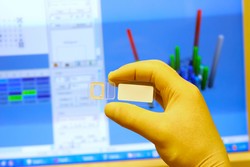Bioinformatics tools for biotechnology
Among the key objectives of biotechnology is the identification of novel enzymes and microorganisms that will provide tomorrow's new products and improved processes. Especially, proteins find applications in various processes as enzymes in chemical synthesis, in diagnosis, as therapeutic proteins in disease treatment and in industrial applications. The rapid technological progress of DNA sequencing has greatly facilitated the fast mapping of microbial genomes. This, however, necessitates matching bioinformatics platforms for subsequent analysis. Towards this goal, scientists on the EU-funded BIOLEDGE (Bio knowledge extractor and modeller for protein production) project set out to develop bioinformatics-driven modelling tools for integrating and interpreting this data. The rationale was to guide research first in silico, before conducting cost- and labour-intensive work. Such predictive models would reduce the workforce and financial requirements and help overcome the accompanying challenges. Among the BIOLEDGE achievements were a high-performance computing platform for biological modelling and mining tools for bioinformatics data analysis. Although focused on protein production, these tools have the capacity to integrate heterologous data. Furthermore, metabolic models of the industrially relevant microbes Trichoderma reesei and Komagataella pastoris were generated for better strain design and cultivation condition development. Such predictive models of the outcomes of biological processes rely on genome-wide data, and estimate the relationship between different factors in any given protein production process. In the future, engineered protein variants are expected to increase the diversity of protein products and further expand the biotechnological applications of proteins. At the same time, the need for efficient production of high-quality proteins and the requirement for data analysis or predictive models would rise. With industrial biotechnology being a big asset of the European industry, the BIOLEDGE deliverables will contribute towards its future competitiveness.







